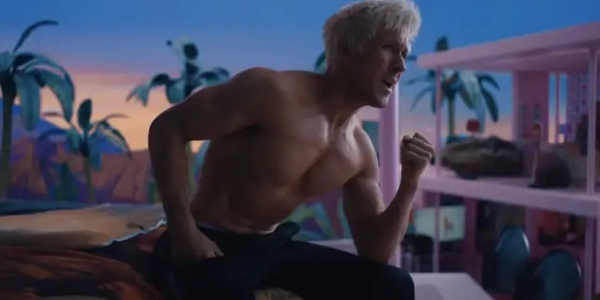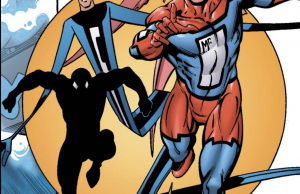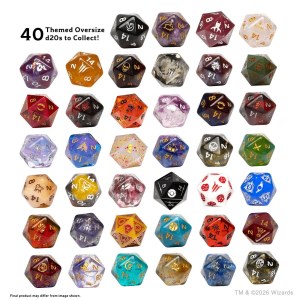
It’s rare, nowadays, to see a musical number as viral or thematically rich as “I’m Just Ken”. The sole song-and-dance sequence in Barbie (2023) reached a million downloads on Spotify in one day (that’s before the film even released on July 21!). It also quickly became one of the film’s most talked-about moments. But why? Was it because audiences were excited to see Ryan Gosling indulge his musical side for the first time since La La Land (2016)? Was it because of the mere overwhelming anticipation for the movie itself? I think it goes beyond even the surface level, and I’m going to break down what makes the song so strongly convey the song’s commentary on toxic masculinity.
The Lyrics
When the song starts, it seems to be simultaneously about Ken reflecting on his feeling like a sub-citizen in Barbie Land, as well as his romantic frustration. The lyrics express this with statements such as “Doesn’t seem to matter what I do/I’m always number two”, as well as “All my life, been so polite/But I’ll sleep alone tonight”. The latter statement ties into the psychology of so-called “Nice Guys” or “Incels”, who feel their rejection by women is a reflection of the reality that women don’t like nice men. In reality, this isn’t true for two reasons: niceness does not equal entitlement to a relationship, and the reason men believe kindness isn’t attractive is because this ties into the false patriarchal belief that real men should never show tenderness around a woman. But then again, this is not all that this piece meditates on.
source: Warner Bros. Pictures
As the song continues, Ken’s expression of unrequited affection becomes more purely vulnerable in its lyricism, transforming into “I’m just Ken/Where I see love, she sees a friend/What will it take for her to see the man behind the tan and fight for me?”, making it clear Ken knows deep-down that Barbie doesn’t share his feelings. Additionally, Mark Ronson and Andrew Wyatt touch on the underlying pain of Ken’s blind obedience to the rules of the patriarchy, with the repeated verse of “Cause I’m just Ken/Anywhere else I’d be a ten/Is it my destiny to live and die a life of blonde fragility?”. That last line is a devastating admission of pain, highlighting the fragility of men’s facades when they force themselves to conform to society’s expectations.
When the Kens have their over-the-top battle on Malibu Beach, Ken’s lyrics continue in an even more pitiful direction, with “I wanna know what it’s like to love, to feel the real thing/Is it a crime? Am I not hot when in my feelings?”, again taking direct aim at one of the central tenets of traditional masculinity: showing your emotions is not attractive. Not only that, Ken starts to show the true hurt and want for connection underneath his faux-toughness.
source: Warner Bros. Pictures
Yet the song, as well as Ken’s arc, starts to take a more optimistic turn towards the song’s conclusion. When all the various Kens suddenly imagine themselves in an almost effervescent dance number, taking place in a blue-pink void, their sincere yearning to accept themselves as adequate shines through. Gosling and his enthusiastic chorus sing about how “I’m just Ken (and I’m enough)/And I’m great at doing stuff”, how “I’m just Ken (and so am I)”, and “So hey, world, check me out, yeah, I’m just Ken/Baby I’m just Ken”. It shows how Ken and his fellow men are starting on the path to realizing that they are just fine as is. No romantic relationship required.
The Visuals
In terms of the visual aspect of this number, I want to focus on two things: the fight on Malibu Beach, and the internal, secondary dance number I just discussed. The stunt choreography and coordination for the former is so ridiculous, it’s like out of a war movie parody. But that’s exactly the point. As the Barbies’ plan to restore order in Barbie Land partly involves turning the Kens against one another in order to show them how futile obeying the patriarchy truly is, it’s only right that Greta Gerwig and her team go all-in, reveling in the moment’s goofy factor. That they’re toys fighting with fake weapons in a toy world only makes it even funnier, and helps hammer the message home evermore pointedly.
source: Warner Bros. Pictures
Moreover, the internal dance number that occurs not only has less aggressive or pained lyrics, but also far more liberated, jazzed-up movement. Just as what the actors/dancers are singing feels more upbeat and optimistic, the choreography and general body language echoes its meaning. The Kens are acting more affectionate and supportive towards each other, sometimes literally providing physical support for Ryan Gosling as he brings this dazzler to a head. It’s more than just an entertaining sequence; it’s a surprisingly emotionally self-aware one.
So What Should Be Taken From This?
Ultimately, this song and dance number encapsulates the overarching point of the movie’s messaging about toxic masculinity: Men should just be who they want to be. As they are, they are “Ken-ough”, with or without a girlfriend. They are also Ken-ough without having to conform to this narrow set of ‘masculine’ ideals. The whole sequence is a gorgeous, hysterical and heartfelt meditation on the pressures of living in today’s world. All you have to do to break free is decide that you’re just Ken, and that you are enough.
Does content like this matter to you?
Become a Member and support film journalism. Unlock access to all of Film Inquiry`s great articles. Join a community of like-minded readers who are passionate about cinema – get access to our private members Network, give back to independent filmmakers, and more.








